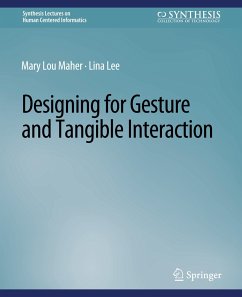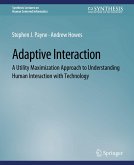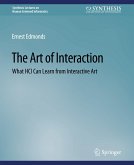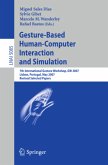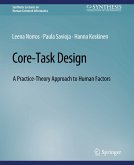Interactive technology is increasingly integrated with physical objects that do not have a traditional keyboard and mouse style of interaction, and many do not even have a display. These objects require new approaches to interaction design, referred to as post-WIMP (Windows, Icons, Menus, and Pointer) or as embodied interaction design.
This book provides an overview of the design opportunities and issues associated with two embodied interaction modalities that allow us to leave the traditional keyboard behind: tangible and gesture interaction. We explore the issues in designing for this new age of interaction by highlighting the significance and contexts for these modalities. We explore the design of tangible interaction with a reconceptualization of the traditional keyboard as a Tangible Keyboard, and the design of interactive three-dimensional (3D) models as Tangible Models. We explore the design of gesture interaction through the design of gesture-base commands for a walk-up-and-use information display, and through the design of a gesture-based dialogue for the willful marionette. We conclude with design principles for tangible and gesture interaction and a call for research on the cognitive effects of these modalities.
This book provides an overview of the design opportunities and issues associated with two embodied interaction modalities that allow us to leave the traditional keyboard behind: tangible and gesture interaction. We explore the issues in designing for this new age of interaction by highlighting the significance and contexts for these modalities. We explore the design of tangible interaction with a reconceptualization of the traditional keyboard as a Tangible Keyboard, and the design of interactive three-dimensional (3D) models as Tangible Models. We explore the design of gesture interaction through the design of gesture-base commands for a walk-up-and-use information display, and through the design of a gesture-based dialogue for the willful marionette. We conclude with design principles for tangible and gesture interaction and a call for research on the cognitive effects of these modalities.

